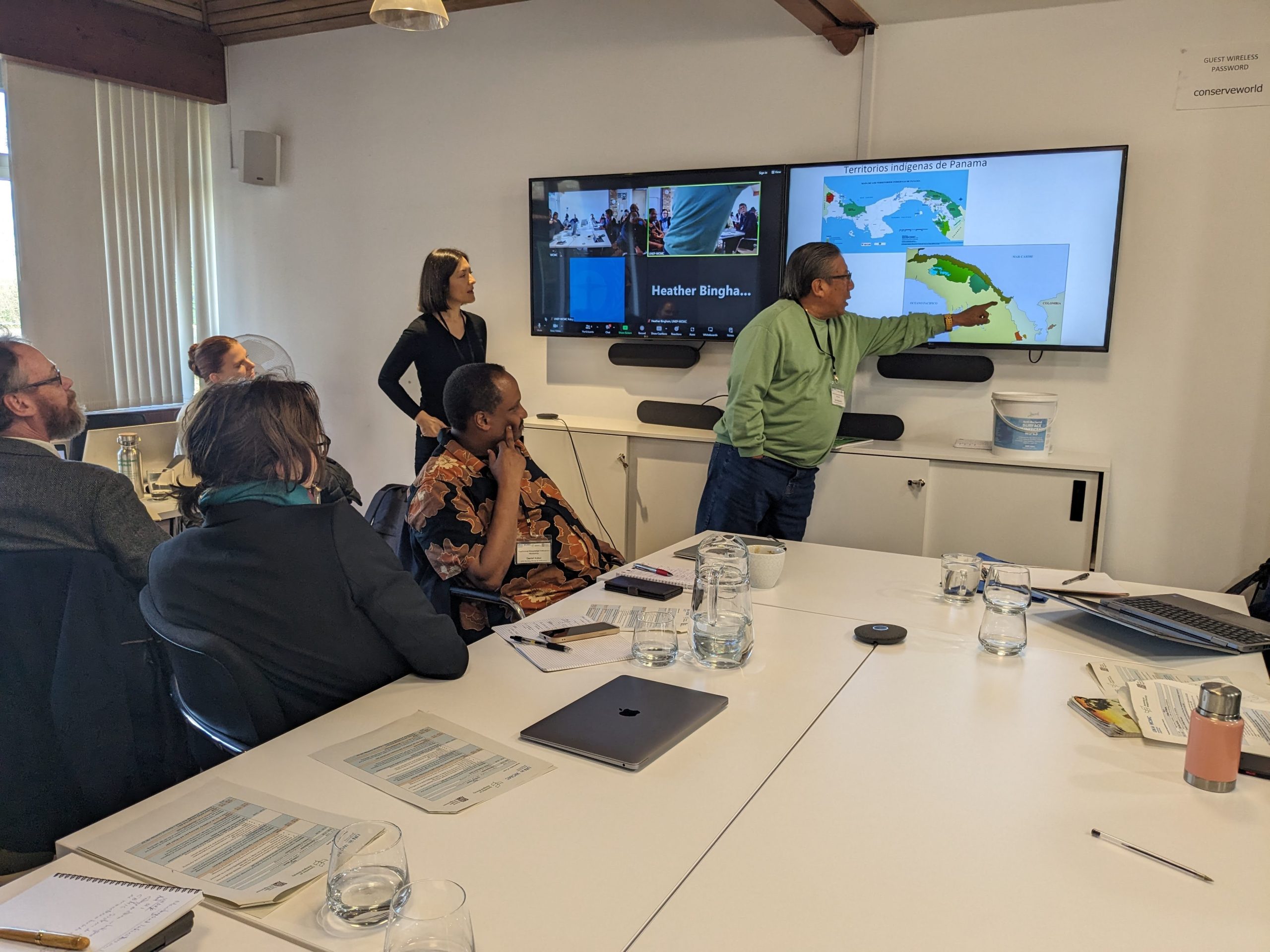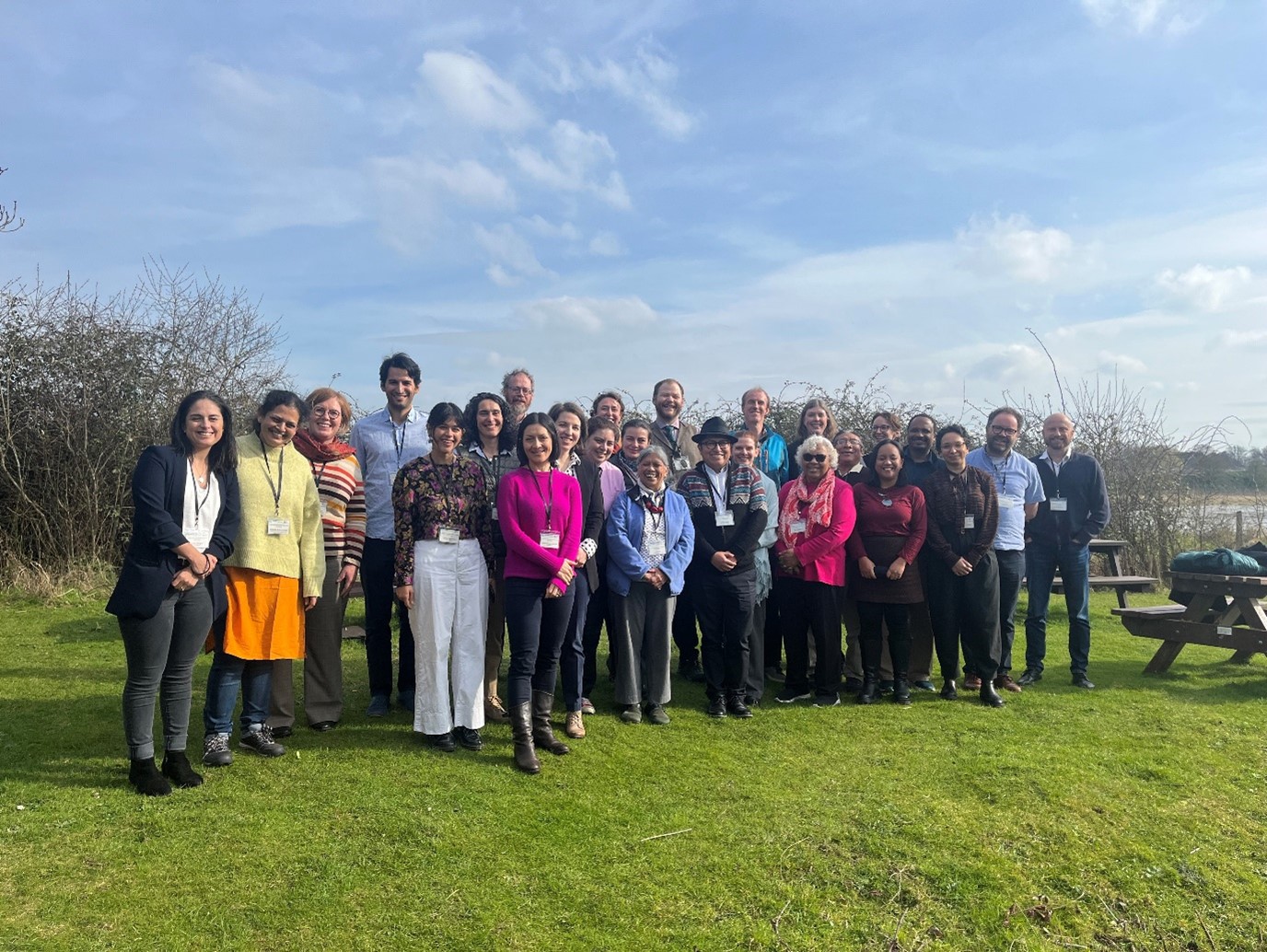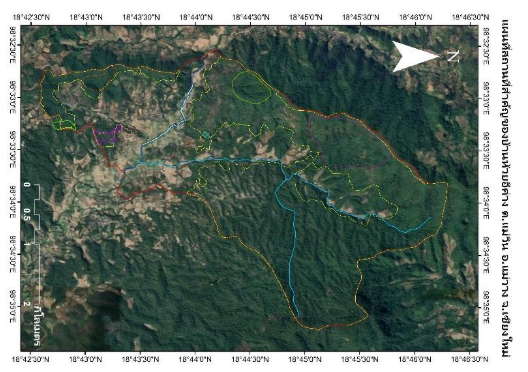As part of the Transformative Pathways project, FPP and UNEP-WCMC, together with the Secretariat to the Convention on Biological Diversity, convened an Expert Workshop on Traditional Knowledge Indicators in Cambridge, UK, in March 2024. The event brought together Indigenous experts on indicators, members of the Ad Hoc Technical Expert Group (AHTEG) on Indicators, and expert individuals and organisations working on traditional knowledge indicators to review and provide recommendations on how to integrate traditional knowledge indicators into the monitoring framework for the Kunming-Montreal Global Biodiversity Framework (K-MGBF, or GBF)
This workshop was a key event in the project’s work focusing on the traditional knowledge indicators as a tool to emphasize and embed indigenous peoples’ (IP) and local communities’ (LC) actions in both the implementation and the monitoring processes of the K-MGBF – the main international commitment on biodiversity.
The K-MGBF recognizes that “this is a framework for all” and has special provisions which require the Framework to:
- be implemented, reported and evaluated in a participatory manner;
- recognise the contributions and rights of indigenous peoples and local communities, and
- take into account different value systems and worldviews,
The project has chosen to focus on work around the monitoring framework which was adopted alongside the K-MGBF. The monitoring framework provides a set of indicators for countries that are Parties to the CBD to track progress towards adopted goals and targets of the GBF. However, the monitoring framework was kept under review and is meant to be finalised by October 2024. This provided an opportunity to engage with the Ad-Hoc Technical Expert Group (AHTEG) on Indicators to assess the status of traditional knowledge indicators and integrate these in the monitoring framework.
Type: Blog
Region: Global
Country: All
Theme: Biodiversity Monitoring, International Processes
Partner: FPP, UNEP-WCMC
Tags: Kunming-Montreal Global Biodiversity Framework, Indicators, Monitoring Framework

Onel Marsadule, of the Guna Indigenous Peoples of Panama, addresses attendees of the Expert Workshop on Indicators. Credit: UNEP WCMC.
The more than 30 participants included members of the AHTEG on Indicators, Indigenous experts on indicators from the International Indigenous Forum on Biodiversity (which serves as a caucus of IP and LC representatives to the CBD), and expert individuals and organisations working on the development and use of traditional knowledge indicators. These included the Indigenous Navigator, the International Partnership for the Satoyama Initiative, the International Land Coalition, One World Analytics, University of Michigan, Melbourne University, the International Labour Organization, the Food and Agriculture Organization of the United Nations, Landmark and GEOBON. Experts discussed methodological, technical and practical considerations on how the traditional knowledge indicators can be integrated into the monitoring framework.
The workshop addressed how the four traditional knowledge indicators and monitoring tools can contribute towards strengthening local, national and global data platforms and statistics relevant for indigenous peoples and local communities.
The Four Traditional Knowledge Indicators
The traditional knowledge indicators, adopted under the CBD, are important in measuring the impact and integration of indigenous peoples’ and local communities’ knowledge and practices in biodiversity conservation. These have been developed as part of the Working Group on Article 8(j) process and they are:
- Trends in linguistic diversity and numbers of speakers of indigenous languages;
- Trends in land-use change and land tenure in the traditional territories of indigenous peoples and local communities;
- Trends in the practice of traditional occupations; and
- Trends in the degree to which traditional knowledge and practices are respected.
The discussions and recommendations developed during the expert workshop in Cambridge were submitted to and informed the recommendations of the AHTEG on Indicators (a scientific and technical review of the traditional knowledge indicators) and will further inform discussions at SBSTTA-26. The Expert Workshop also served to strengthen future collaborations among participants towards data generation, management and promotion of relevant information related to indigenous and local knowledge.
During the workshop, special attention was given to community-based monitoring and information systems (CBMIS). These are approaches and tools used by indigenous and local communities themselves to systematically generate data on social and environmental trends on their territories.
Supporting IP and LC participation in monitoring and reporting processes is a key objective of the Transformative Pathways project, and this is especially important in community-based monitoring, as indigenous peoples and local communities have detailed knowledge about local, social, territorial and ecosystems management. To support this further, we are supporting the co-development of community-owned monitoring frameworks and recently published a related practical guidance for monitoring of natural resources by IPs and LCs.
States that are Parties to the CBD have specifically stressed the importance of CBMIS approaches for filling temporal and spatial data gaps, and for building capacity to implement the monitoring framework.


